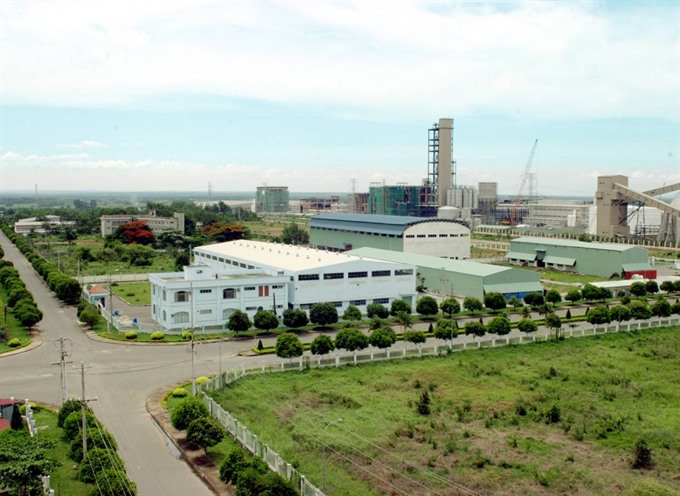 Economy
Economy

Việt Nam has attracted companies renting industrial property due to low cost as well as strategic location, strong economic growth and development of the middle-class, according to JLL Việt Nam.
 |
| Industrial parks and other industrial properties are sparse and major industries are not gathered for development on a regional basis. — Photo tapchitaichinh.vn |
HCM CITY – Việt Nam has attracted companies renting industrial property due to low cost as well as strategic location, strong economic growth and development of the middle-class, according to JLL Việt Nam.
The industrial property market in Việt Nam, including industrial land, ready-built factories, warehouses and other logistics properties, is in the nascent stages of development.
Given the country’s improving market fundamentals, Việt Nam stands a good chance of winning the market share as its regional peers shift towards more mature industrial development, according to Trang Lê, manager, research and consultancy, JLL Việt Nam.
There are several notable advantages that make Việt Nam an attractive destination for industrial development.
One of the main reasons is the country’s strategic location. Việt Nam’s advantageous geographical position, with access to the world’s major seaborne trade routes, has offered the country huge opportunities to develop its maritime transport, particularly logistics services.
In addition to this, the country’s proximity to China makes it a worthy option for manufacturers looking at alternative locations in the South East Asia region because the operating cost in China has been continuously increasing in recent years.
Moreover, Việt Nam has gained strong economic growth over the past few years. The key drivers of this growth are urbanisation, foreign direct investment, growth in the manufacturing sector and growth in the middle-income population. These factors have created a spillover effect, driving the country’s demand for international transport and logistics services.
As the domestic economy moves from agriculture to manufacturing and services, household income is likely to increase. Việt Nam’s General Statistics Office has shown that Việt Nam is experiencing a “golden population structure”, with the average working age ranging from 20 to 50, with a median age of some 30 in 2016. A young population coupled with growth in average income will support purchasing power and help the country remain an attractive destination for both local and foreign investors.
Meanwhile, Việt Nam has become more attractive to foreign manufacturers, their associated suppliers and supporting industries, thanks to its existing variety of tax incentives and low labour costs. This in turn will allow further potential growth in the industrial sector, particularly in logistics services.
However, according to Trang, industrial parks and other industrial properties in Việt Nam are now competing mainly on location, rather than on standards of infrastructure, buildings and services.
Industrial parks and other industrial properties are sparse and major industries are not gathered for development on a regional basis.
Major occupiers are predominantly from labour-intensive industries, including textiles and garments, food products, wood products and furniture and rubber and plastics products. The contribution of the value-added sector is still insignificant. — VNS




